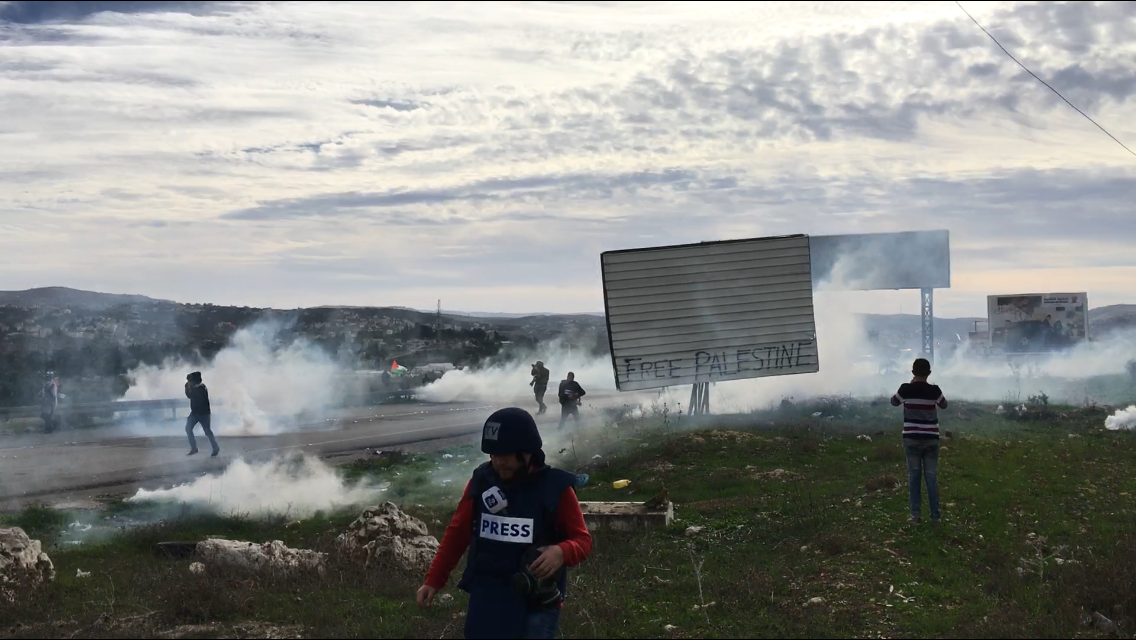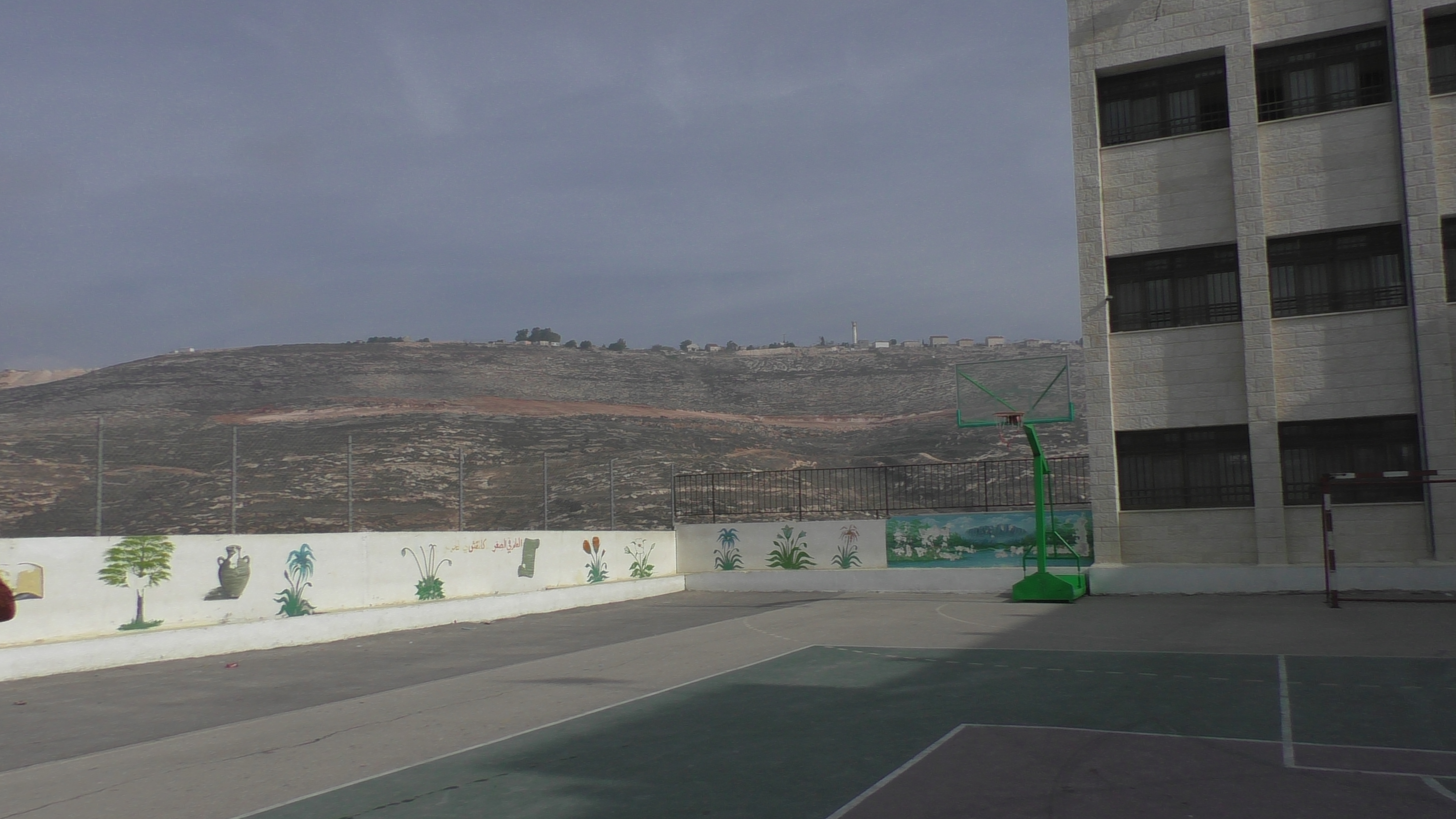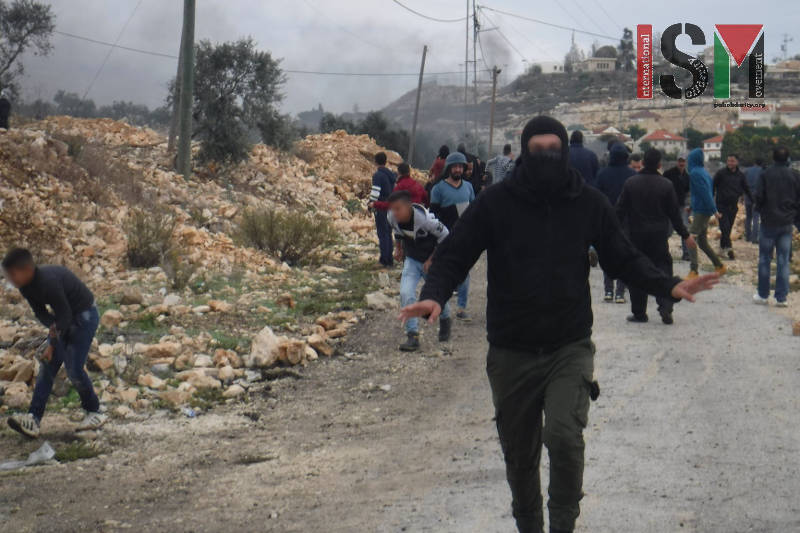Tag: Nablus
-
Once again, a non-violent, Palestinian-lead demonstration was met with Israeli Police violence.
2nd December 2018 | International Solidarity Movement, Nablus team | Nablus, Occupied Palestine Once again, Palestinians exercised their right of free speech under international law, and once again, were encountered with tear gas and gunfire. Outside Nablus, demonstrations took place against the continuous construction of Israeli settlements and outposts, imprisonment of Palestinians- young and old- and…
-
Urif: the struggle to study
Urif, the 21th of November Urif is a small Palestinian village perched on the top of a hill, not far from Nablus. The view is beautiful and clear, overlooked by another scenic hill. A longtime resident tells us that before the 1980s, the locals used to go for walks and picnics in the area, but…
-
Two Palestinians and an International shot at non-violent Protest in Kafr Qaddum
November 23, 2018 | International Solidarity Movement | Kafr Qaddum, Occupied Palestine Fourteen years ago the Israeli Government closed the road between Kafr Qaddum and Nablus, extending the distance to 14 km, effectively making what would be a 15 minute journey for the villagers, into 40 minutes. The protests began in 2011 to reopen the…



